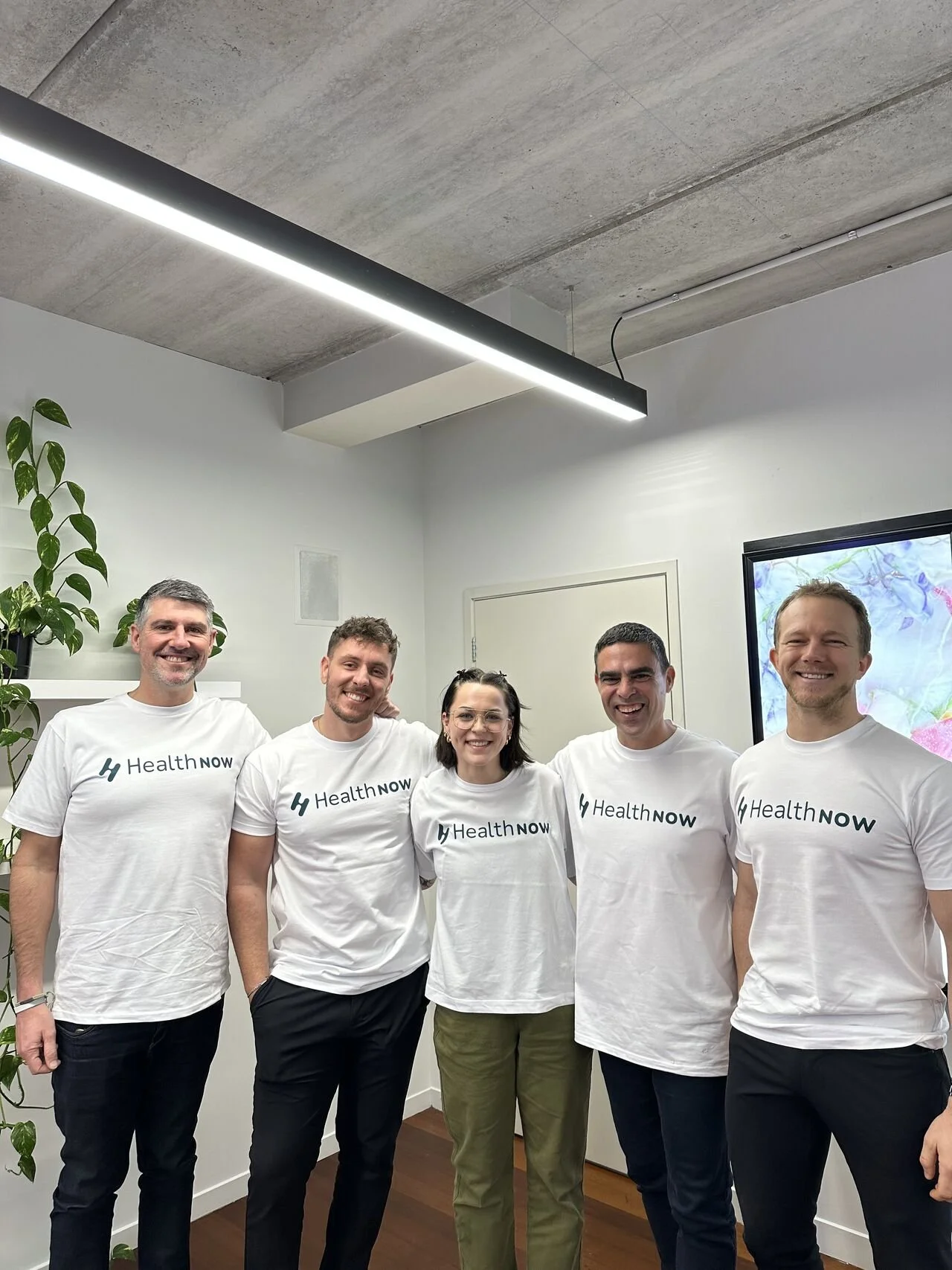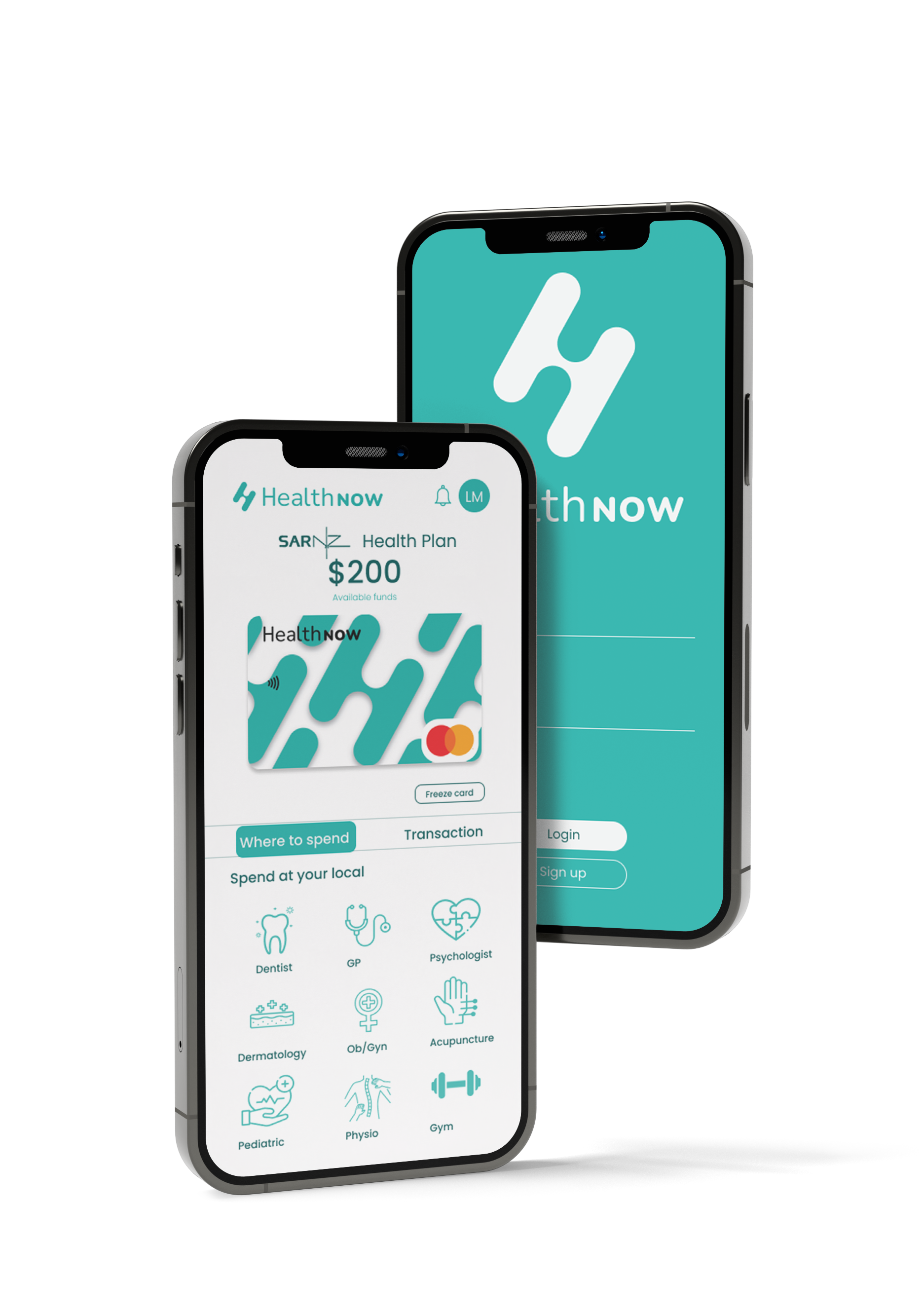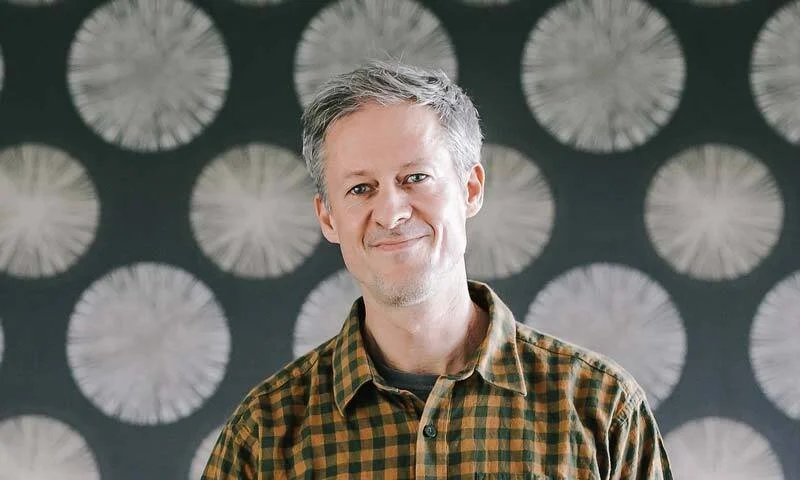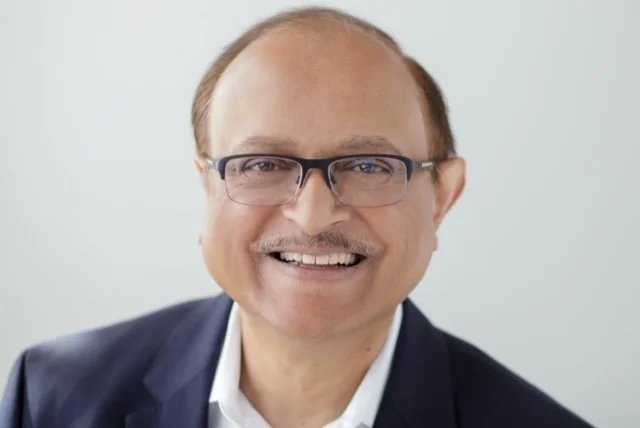Scaling Kiwi Healthcare Business At Home And Going Global
NZ Fellow Dave Insull and the team at HealthNow are making healthcare more accessible and equitable by enabling employers to fund out-of-pocket health and wellness solutions for their employees. Dave is working closely with HealthNow Founder, Steven Zinsli, in collaboration with Edmund Hillary Fellowship (EHF) Fellows Andrew Hoppin (Kawakawa), Mohan Nair (Manu Tukutuku) and Aaron McDonald (Kopakopa) to scale HealthNow’s impact in Aotearoa NZ and internationally.
Caption: Fellow Dave Insull with HealthNow founder Steven Zinsli, and HealthNow team members Georgia Vincent, Andrew Phillipps, Calvin Du Plessis
EHF Fellow and HealthNow Investor and Head of Partnerships, Dave Insull, grew up in Tāmaki Makaurau/Auckland and began his career as a lawyer before investing and operating in a number of young tech companies in his 20s and 30s. His focus then transitioned to investing in the next generation of impact-focused, early-stage startups in Aotearoa NZ and beyond. “I built a venture capital firm called AfterWork Ventures with four partners (raising AUD$22m in our first fund), investing in early-stage NZ and Australian tech companies. It was during this time that I first learned about HealthNow.”
When Cyclone Gabrielle wiped out his family’s home and business in Esk Valley in early 2023, Dave knew it was time for a change. “I was sitting in a rental property in Hawke’s Bay knowing that I needed a path forward. There were maybe half a dozen opportunities that I was considering at the time, but HealthNow was the only one I pursued. I reached out to Steven [Zinsli, HealthNow Founder], we met within 24 hours and I started work with him on the following Monday. I made a personal investment and came on board to manage partnerships and capital-raising.”
Caption: Steven Zinsli (Founder of HealthNow) with EHF Fellow Dave Insull (Head of Partnerships)
It was Steven’s vision and commitment that inspired the collaboration, Dave says. “I could tell that he was a capable entrepreneur who was doing his life’s work. When you see someone living and breathing in that context, it de-risks an investment more than any other factor, in my experience. I also shared his broad vision to make healthcare more accessible and equitable for some of the most marginalised people in our society, and I saw his ability to translate that local vision into a global context. There was an obvious venture-scale opportunity.”
HealthNow is shifting the healthcare paradigm from reactive to proactive by enabling people to get care when the need arises, rather than when a crisis arises. This is achieved through the combined tools of an employee portal, app and health wallet. “The overarching goal is to bring healthcare into the palms of people’s hands,” Steven says. “24-39% of Kiwis don’t access healthcare because of cost-related barriers. We want to solve that problem by enabling employers to become stakeholders in the health of their employees and providing a technologically enabled way for anyone who wants to participate in the provisioning of healthcare to do so. Our horizontal payment structure streamlines the process of the stakeholder providing funds into the wallets of an end-user’s application which then is activated with a card to move funds from the top level into the hands of the healthcare provider.” “We can ensure that low-waged people in our economy have access when they need it,” Dave adds, “by bringing the employer into the relationship around health and wellbeing early, and enabling them to easily make a contribution to it. In turn, they are less likely to develop serious issues in the longer term.
“We are providing a preventative health and wellness solution that enables Kiwis to access health and wellness providers, like a doctor, physio, chiropractor or dentist when they need to, rather than if their financial position allows them to. Those four particular service types typically have a co-pay component which, while small for some, can be a significant barrier for many. This leads to a de-prioritisation of healthcare. By transitioning to a system that enables the employer to become a key stakeholder in the health and wellbeing of their employees, and providing them with the technology to do so, we achieve the intended flow-on benefits of reducing absenteeism and presenteeism while boosting productivity.”
Caption: HealthNow’s preventative health and wellness solution ensures everyone can see a doctor, physio, chiropractor, or dentist when they need to
While the current focus is primarily on New Zealand employers and select insurance companies, HealthNow is also collaborating with iwi to help address some of their specific healthcare administration challenges, Dave says. “We were contacted by a large iwi organisation to discuss issues around providing funds to whānau including the cost of distributing funds for needs like dental and eye care. Their systems were paper-based and done manually, creating a significant overhead in managing reimbursable payments. In one fell swoop, we enabled them to give specific amounts of funding at a personalised and individual level, eliminating any administrative tasks around that distribution. We’ve since found that similar challenges are well-documented within other iwi across the country, so we see this as a significant way to help improve outcomes for a group that we know is experiencing inequitable healthcare outcomes.”
In addition to improving outcomes, HealthNow is creating new opportunities for New Zealanders as they work to scale both domestically and overseas, Dave says. “We are generating high-value jobs across tech, sales and marketing, and operations as our business expands. We’ve just hired a new Head of Product and two programmers, as well as a Head of Onboarding and Customer Success, Sales and Marketing. We have a line of sight on dozens of additional roles in the new year as the business scales.”
There is a joint focus now on onboarding major New Zealand employers and producing the next, world-class iteration of the HealthNow product, Dave says. “We want to help employers understand that by participating in their employees’ health and wellbeing using our digital health wallet, they can increase productivity, eliminate the administrative costs of employee benefits and reduce absenteeism. I’m working hard to get our solution into the hands of employers and scale it globally as soon as possible.”
HealthNow’s sights are set on the US, where Dave says more than 40% of people experience cost-related barriers to healthcare. “The US healthcare market is dysfunctional and antiquated in the way it utilises technology. We feel that our solution is a perfect fit there. We are a proud Kiwi company whose HQ will remain in New Zealand, but we recognise that there are further opportunities and different market dynamics in the US. We’re already selling into Australia as an extension of the service we provide in New Zealand, and knowing that the model works here, we now feel confident in taking it to the US.”
Caption: The Kiwi-born company is setting its sights on the US, where over 40% of people face cost-related healthcare barriers
The growth of HealthNow has been strongly supported by relationships within the EHF Fellowship, Steven says, and by the global networks of its Fellows. “When I look at my development over my career, it’s been supported and substantiated by relationships and networks. The ability to leverage the experiences and knowledge of those networks, including EHF, has significantly impacted our journey thus far.”
In particular, both Dave and Steven cite the support of Fellow Andrew Hoppin whose US-based startup, CoverUS, was acquired by HealthNow last year. This acquisition generated a significant regulatory, product and human capital footprint instantly, Dave says, as well as a rolodex of introductions to top-end clients and industry partners across the US. Andrew currently acts as Chairman of the US business. “Becoming a thriving, profitable startup in the New Zealand market is job one,” Andrew says, “but the big, hairy, audacious goal of HealthNow - and the expectation of its investors - is to make healthcare more affordable globally. The US market, as the most expensive healthcare market in the world by spending, is really the market that will support the business in its next phase.”
Andrew has brought deep connections and knowledge to the collaboration and mentored the team on how to navigate the legal and regulatory challenges of the US market. “I introduced Steven to potential charter customers, partners and investors,” Andrew says. “This all serves to make the potential for HealthNow to become a global-scale business far more credible and likely. I've personally been quite inspired and fulfilled by the opportunity I've had to contribute to making healthcare more accessible and affordable in New Zealand, as well as the opportunity to help an audacious New Zealand startup to export life-saving healthcare finance innovations to people in the US.”
Caption: EHF Fellows Andrew Hoppin, Mohan Nair, and Aaron McDonald have played a role in scaling HealthNow’s impact in Aotearoa NZ and internationally
The HealthNow team has also tapped into expertise from EHF Fellow, author of “Strategic Business Transformation” and New Zealand beachhead advisor, Mohan Nair. “I’ve advised HealthNow and observed their trajectory onto the global stage,” Mohan says. “Steven is the recipe of childlike enthusiasm and conviction with ancient wisdom and experiences. Above all, this is capitalism with a cause.” This vision is shared by Fellow and HealthNow investor, Aaron McDonald. “We were the first investors in HealthNow and have been working to support them in their journey since the beginning. We really value what the team is doing to try to increase access to health services.”
“Coming from a family of doctors, HealthNow is providing a full-circle moment for me to help provide accessible, equitable outcomes,” Dave says. “I am committed to seeing high and growing utilisation of healthcare funds with an ongoing benefit to the individual, their whānau and the community around them. What really gets me really excited is knowing that we have the ability to scale that impact to millions of others.”
Story by EHF Fellow Bex De Prospo (Piripiri), Director of Authentic Storytelling








